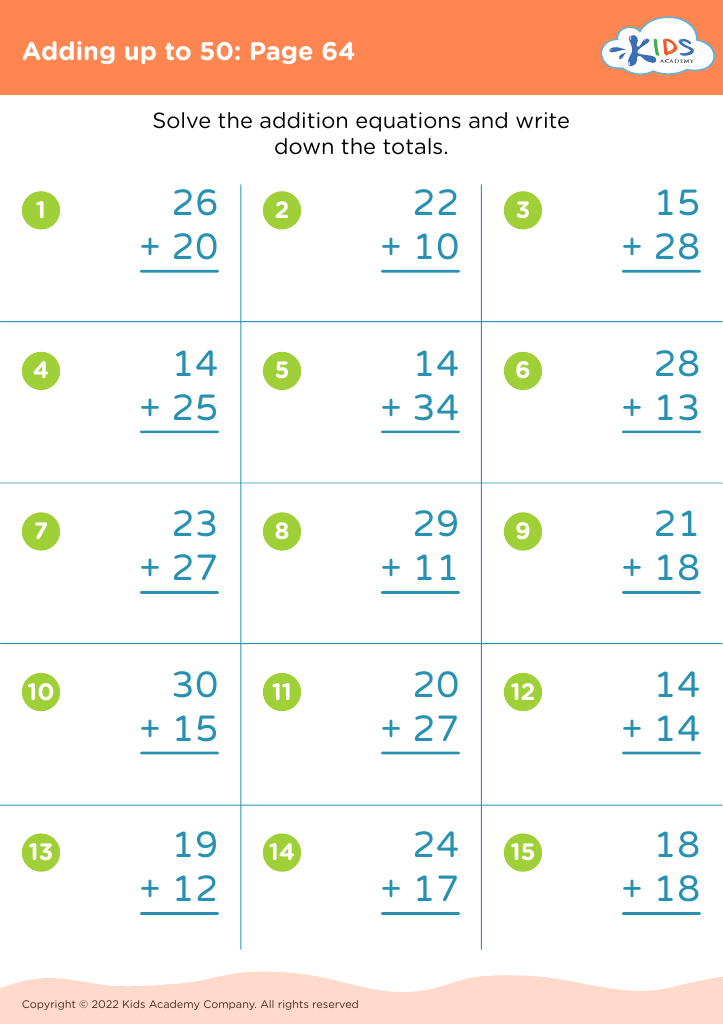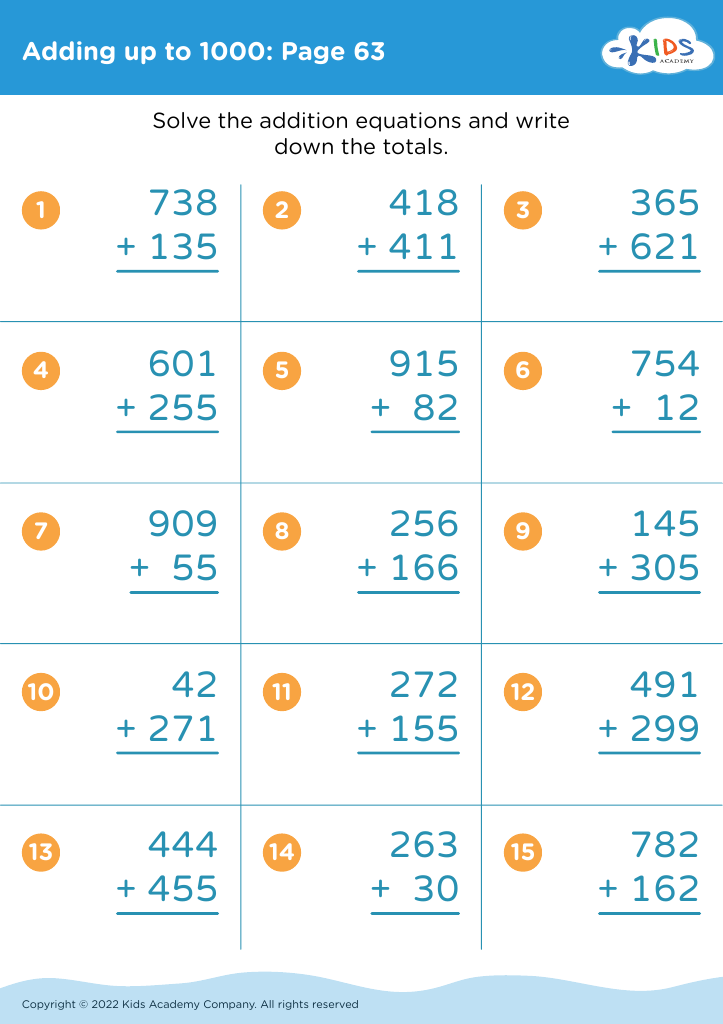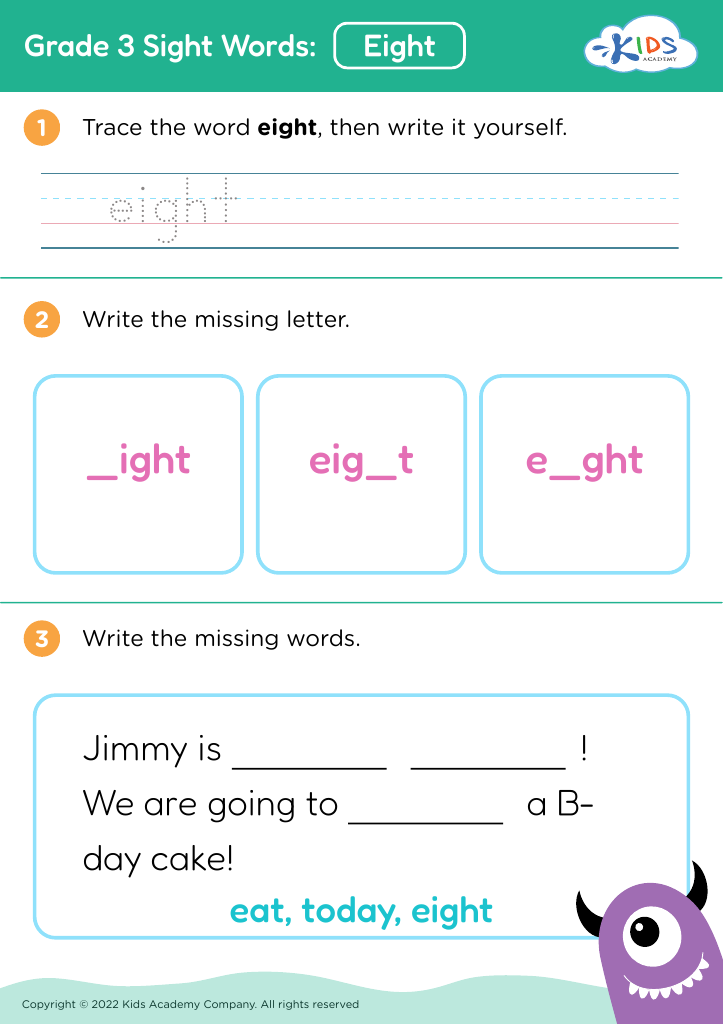Comparing numbers Worksheets for 8-Year-Olds
5 filtered results
-
From - To
Introduce your 8-year-old to the exciting world of numbers with our "Comparing Numbers Worksheets." Specifically designed for this age group, these engaging worksheets help children develop essential math skills in a fun and interactive way. Kids will learn to compare and contrast different numbers, understand greater than and less than, and recognize numerical patterns. These skills are critical for building a solid foundation in mathematics. Our worksheets feature vibrant illustrations and practical exercises that captivate young minds and make learning enjoyable. Perfect for both classroom and at-home practice, these worksheets help ensure your child excels in math.
Comparing numbers is a fundamental mathematical skill that 8-year-olds need to develop for several reasons. Firstly, understanding how to compare numbers helps children build a solid foundation in number sense, which is critical for more advanced mathematical concepts they'll encounter later, such as addition, subtraction, multiplication, and division. When children grasp how numbers relate to each other, they'll find it easier to solve arithmetic problems and recognize patterns.
Practicing comparing numbers also enhances critical thinking and reasoning abilities. Kids learn to determine the relative value of numbers, which involves analytical skills and logical thought processes. This cognitive development extends beyond math, influencing other subjects and everyday decision-making.
Moreover, comparing numbers is an essential life skill. It helps children make practical decisions, such as understanding quantities, money value, and measurements. These real-world applications underscore the practical importance of mathematical concepts, making them more relevant and engaging for young learners.
Parents and teachers play a crucial role in fostering this understanding by providing adequate practice and real-world examples, encouraging a positive attitude towards mathematics. By prioritizing comparing numbers, parents and teachers support a child's academic success and life skills, fostering confidence and enthusiasm in learning.


























